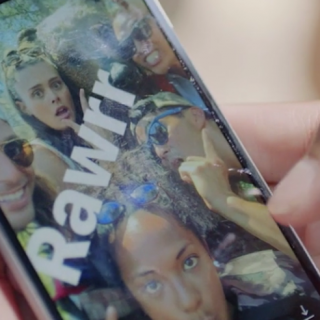This week we published our research report ‘The Ageless Internet: From Silver Surfers to Golden Geeks‘ examining the attitudes to and online behaviour of the 50+, 60+ and 70+ age groups. This research gives us the evidence to back up what we have known anecdotally for some time now – that social media isn’t just for the kids. In this study we looked at generations that might all be considered ‘old’ by the much sought after 18-24 demographic.
The control group of 30-49 year olds is broad, spanning Britons who grew up with the internet and mobile devices as part of their adolescence and working lives, up to people who were in their mid-twenties when Tim Berners-Lee pioneered the web in the 1980s. It excludes the true digital natives under 30, and focuses instead on the decades beyond – those in their 50s, 60s and the over 70s.
The growing numbers of socially-networked and digitally over 50s has been widely reported, but often only from the angle of how it has affected the younger generation. Teenagers’ aversion to parental supervision, potential embarrassment and, just as likely, a general miasma of uncool radiating from just being there, is driving uptake of new networks like SnapChat.
It’s an important development, to be sure. But very little has been made of the obvious corollary – that there is a hugely significant older audience online and in social spaces. It would be wrong to suggest there isn’t still a skew to younger demographics overall, but the power of audience segmentation and targeting on social networks’ ad delivery mechanics means that generalisations about ‘the average user’ are largely academic.
The logic of how we got here is plain enough – first, there’s simple scale. You can’t build an audience of more than 1bn people around the world, as Facebook has done, without having a broad appeal across demographics. Secondly, there’s the inevitable march of time – we’re all of us ten years older than when Facebook launched, and those early Harvard undergrad will likely as not be parents now. Even fresh-faced Zuck is a married man – and even he turned 30 on 14 May.
For marketers, this audience is hugely attractive – or should be, based on our findings. The research was of an online audience, so in that sense was self-selecting – there remains a holdout of digital refusers. But surveying those who are online provides a useful corrective to some long held assumptions about silver surfers. Our respondents are confident using the web – in fact, 92% of over 70s see age as no barrier to using the web as against 70% of the younger control group. They are time-rich, and, accounting for their lower financial commitments, comparatively cash-rich too. They research online, and are strong believers in the power of search to make their lives easier; they ‘reverse-showroom’, researching products online and buying in store; they are comfortable buying many products online.
If brands are willing to speak to them in their language, without condescension, they are a prime audience to reach through social platforms. Social media as a discipline might yet be growing up.



